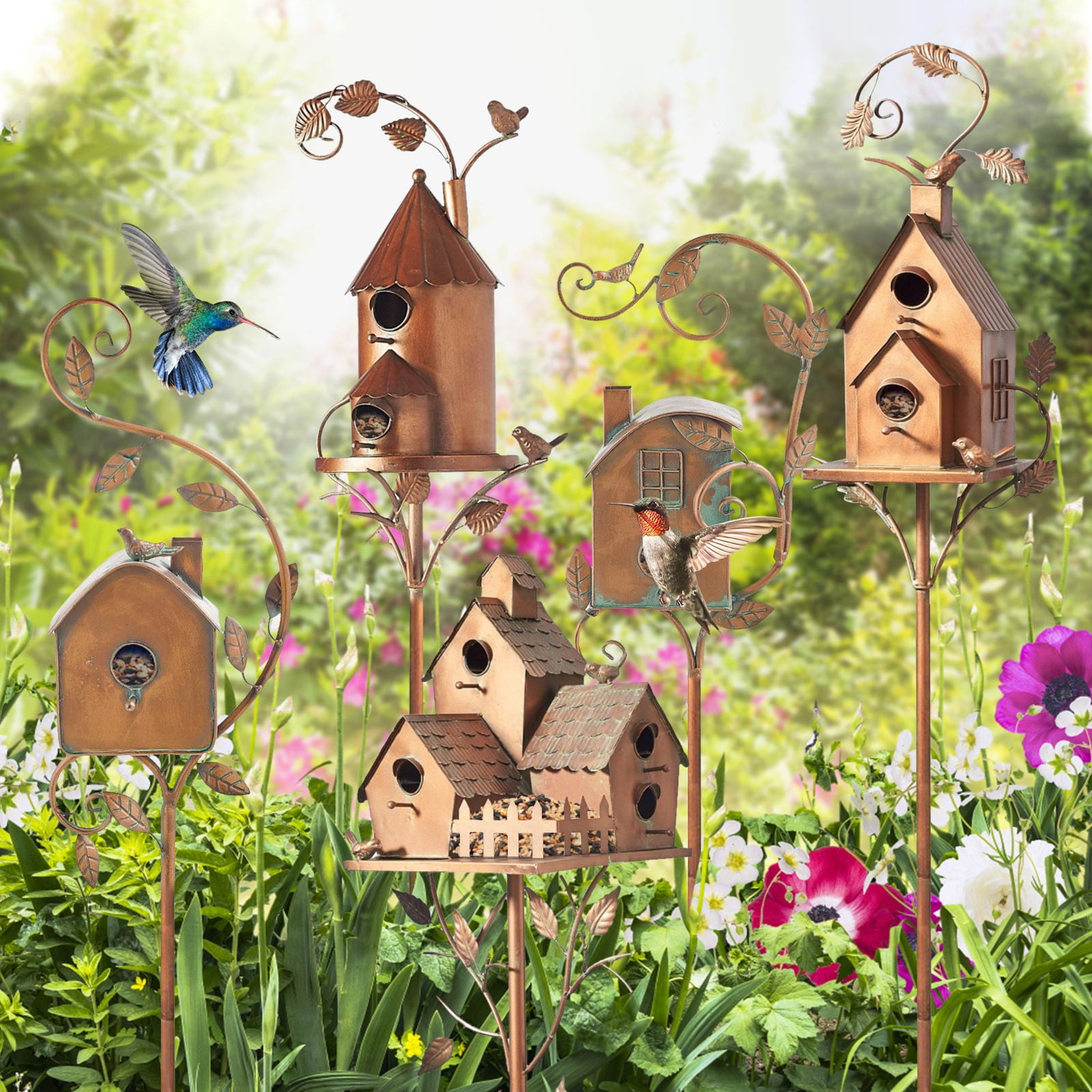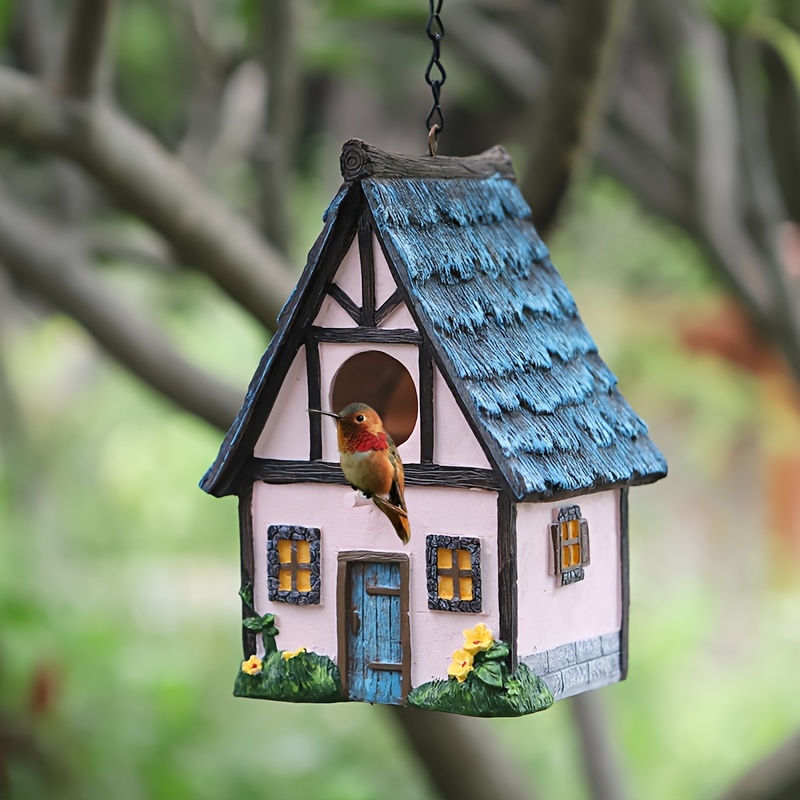Birdhouses are more than just functional homes for our feathered friends; they can also serve as captivating decorative elements in your outdoor space. In this comprehensive guide, we’ll delve deep into the world of decorative outdoor birdhouses, discussing their benefits, styles, materials, and much more. Whether you’re an avid birdwatcher or simply love to beautify your garden, understanding birdhouses can greatly enhance your outdoor experience.
Table of Contents
- Benefits of Decorative Outdoor Bird Houses
- Types of Decorative Bird Houses
- Materials for Bird Houses
- Choosing the Right Bird House
- Maintaining Your Bird House
- Comparison Table of Popular Bird House Styles
- Frequently Asked Questions
- Conclusion
Benefits of Decorative Outdoor Bird Houses
Decorative outdoor birdhouses provide numerous benefits, both for the birds and for garden enthusiasts. Here are the key advantages:
- Attracting Wildlife: Birdhouses invite various species of birds into your garden, enhancing its ecological value.
- Adding Aesthetic Appeal: With countless designs available, birdhouses can serve as stunning focal points in your garden.
- Learning Opportunity: Birdhouses provide an excellent opportunity for children and adults alike to learn about bird behavior and habitats.
- Supporting Bird Conservation: Providing shelter helps combat habitat loss, making your garden a haven for birds.

Types of Decorative Bird Houses
When it comes to decorative outdoor birdhouses, the choices are endless. Here are some popular types:

Traditional Bird Houses
Embodying classic designs, traditional birdhouses often feature ornate details and vibrant colors. They can be an excellent choice for gardeners looking for that vintage charm.
Modern Bird Houses
Characterized by sleek lines and minimalist designs, modern birdhouses appeal to contemporary tastes. Often made with eco-friendly materials, they blend seamlessly with modern gardens.

Whimsical Bird Houses
For those who love a touch of fantasy, whimsical birdhouses come in unique shapes and colors. Think mushroom-shaped houses, fairy-tale cottages, or even structures resembling popular landmarks!
Functional Backyard Bird Houses
These birdhouses are designed for specific bird species, complete with the appropriate dimensions and ventilation. They may be less decorative but serve a vital ecological purpose.

Repurposed Bird Houses
Upcycling old materials into birdhouses can create one-of-a-kind pieces that showcase your creativity while being environmentally friendly.
Materials for Bird Houses

Choosing the right materials is crucial for both the durability of the birdhouse and the comfort of its inhabitants. Below are some common materials used:
Wood
Wood is the most popular material for birdhouses. Cedar and pine are favored due to their natural resistance to decay.

Metal
Metal birdhouses are sturdy and can withstand harsh weather conditions. However, they may get hot in direct sunlight, so they are best suited for shaded areas.
Recycled Materials
Birdhouses made from recycled materials, such as plastic or reclaimed wood, are great sustainable options. They often come with interesting designs too!

Comparison of Materials
| Material | Pros | Cons |
|---|---|---|
| Wood | Natural look, good insulation, easy to work with | Can rot without treatment, requires maintenance |
| Metal | Durable, weather-resistant, easy to clean | Can heat up in the sun, less insulating |
| Recycled Materials | Sustainable, unique designs, often lightweight | Durability can vary, may not be traditional |
Choosing the Right Bird House
Selecting the right birdhouse involves considering several factors, including location, bird species, and personal aesthetic. Here’s a step-by-step guide:
1. Consider the Location
Place your birdhouse in a quiet, sheltered area, away from strong winds and direct sunlight.
2. Identify Local Bird Species
Research which birds are common in your area and choose a birdhouse that suits their needs (e.g., entrance hole size, internal dimensions).
3. Match Your Garden Style
Your birdhouse should complement the overall look of your garden. Think about color schemes and design aesthetics.
4. Ensure Easy Maintenance
Choose a birdhouse with easy access for cleaning and monitoring. Look for removable roofs or side panels.
Maintaining Your Bird House
To ensure that your decorative birdhouse remains in good condition and provides a safe environment for birds, follow these maintenance tips:
- Regular Cleaning: After the breeding season, clean out old nesting material and debris.
- Inspect for Damage: Check for signs of rot, leaks, or pests. Repair any issues promptly.
- Weatherproofing: Apply a non-toxic sealant to wooden birdhouses to extend their life.
- Proper Ventilation: Ensure that your birdhouse has adequate ventilation to prevent overheating.
Comparison Table of Popular Bird House Styles
| Style | Main Features | Best For | Price Range |
|---|---|---|---|
| Traditional | Classic designs, usually wood, often painted | Songbirds like bluebirds and wrens | $30 – $100 |
| Modern | Sleek, minimalistic design, eco-friendly | Chickadees and sparrows | $50 – $150 |
| Whimsical | Unique shapes, vibrant colors | Fun decoration, not species-specific | $25 – $80 |
| Functional | Specific dimensions for certain birds | Species-specific housing | $20 – $60 |
| Repurposed | Made from upcycled materials | Environmentally conscious gardeners | $15 – $50 |
Frequently Asked Questions
What materials are best for outdoor bird houses?
Wood, especially cedar and pine, is the most common and effective material for outdoor birdhouses. Metal is also an option but may require careful placement to avoid overheating.
How can I attract birds to my birdhouse?
Place your birdhouse in a suitable location, choose styles that cater to local bird species, and ensure it is clean and well-maintained.
Do birdhouses need to be painted?
While painting is not necessary, you can use non-toxic paint to add color. Avoid dark colors that can cause overheating inside the house.
Can I leave my birdhouse out year-round?
Yes, but make sure to clean it after the breeding season and inspect it for damages, ensuring it remains a safe environment for birds.
Conclusion
Decorative outdoor birdhouses not only enhance the visual appeal of your garden but also contribute to conservation efforts and provide a home for local bird species. By selecting the right style, materials, and maintaining your birdhouse properly, you can create a welcoming habitat for our feathered friends while enjoying the beauty they bring to your outdoor space.
With the tips and insights shared in this article, you are well-equipped to choose and care for the perfect decorative birdhouse in your garden. Happy birdwatching!